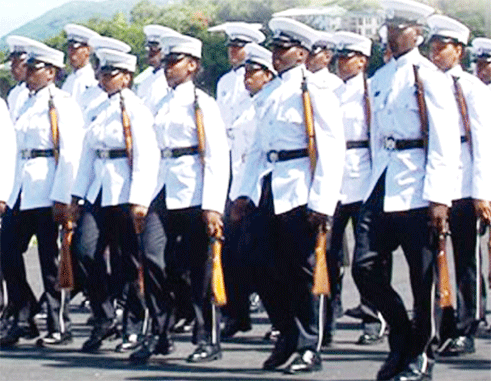
ONE day soon Caribbean students reading Law, Sociology and/or Government may be confronted with an essay question on IMPACS, designed to test what it was, who (and what?) was involved and its special applicability to Saint Lucia. The better prepared students would be certain to give a brief introductory remark on its genesis and its functioning, after it was created. A brief analysis of its timing with special reference to Saint Lucia would be essential. An equally brief account of the main political actors at the time would serve to highlight the students’ understanding of the political culture at the root of it. This would include a discussion on political leadership whether ‘soft on crime’ or not, and offer a possible rationale for such softness, by so-called leaders.
In the case of IMPACS (Saint Lucia), the student would most likely point to what seemed the tipping point in crime and killings on the island, supported by facts and figures. A description of earlier drug related criminal activities on the island would serve to illustrate a superior grasp of the subject matter of the essay. A brilliant student would also ask whether any of these killings were motivated by persons outside of ‘alleged gangs’ which stood accused. The more perceptive students would also ask whether there was any political involvement at the time of heightened criminal enterprise including, many unsolved crimes. A brave one with a fascination for history would even venture to speculate on the possible role played by certain Saint Lucian Party leaders in the Grenada revolution, and in the subsequent demise of Maurice Bishop and the ascendancy of Bernard Coard as Prime Minister.
The middle paragraphs – the heart of the IMPACS (Saint Lucia) report of 2014, the student may legitimately ask the reasons a very vocal section of the Royal St. Lucia Police Service was so hostile to the handful of British police officers who had been assigned, at the request of the Government of Saint Lucia, to help bring run-away crime on the island under control. A brave student may also wish to identify the ring-leaders in the Royal Saint Lucia Police Service who were so brusque, unmannerly and insulting to senior authority whilst insisting that the British policemen should return home. Was there political support for such unmannerly and insulting conduct? Did the British policemen discover any mischief within the local police service? Yes, the best answers also ask questions!
Keeping within the bounds of reasonable conjecture two more questions may be put even as the student avoids descending into wild speculation. An inquiry into the whereabouts of the policemen who had so vehemently demonstrated against the British officers may be smart. Were any of these also involved in the acts which led to IMPACS? Was there complicity within the government, and in particular, did those charged with responsibility for promoting and disciplining members of the Royal Saint Lucia Police Service do their jobs fairly, fearlessly, and in accordance with the island’s constitution.
The essay writer would then endeavour to show that the foregoing historical accounts and the questions they provoked were likely to culminate in the events of 2010 and 2011, which led to IMPACS investigation, and reporting. Was the decision to set up IMPACS the brainchild of one who thinks and dreams up political mischief whilst hiding behind a damaged ego? There is wide speculation that the police was ‘doing its own thing.’ Is that so? Was such speculation borne of statements made by the island’s Prime Minister at the time he purported to deliver the IMPACS report to the nation? Rick Wayne has pointed out, both on his TV ‘Talk’ show and in his Star newspaper that, the Prime Minister delivered a speech that evening, rather than a report on IMPACS main findings. Was Rick correct?
A good essay, in addition to the above would also point out that, to the Prime Minister’s credit, he did not specifically say that the police had grown impatient with certain young criminals who were well known to them – and his government. Neither did the Prime Minister, nor anyone else, say that these ‘troublesome’ young men may be better off dead, saving the police and Saint Lucia hours of drama and bloodshed, and fear. The essayist may wish to point out that the police have private lives and families too. The writer would also wish to express a hope that local police have never descended into providing equipment to aid young thugs killing each other.
The student essayist may choose in the penultimate paragraph, to give some idea of the many articles in the print and electronic media, and the impact which the IMPACS report and the abject lack of information on its details, had on the citizenry at the time of its ‘release.’ The essay would be certain to point out the manner of the Prime Minister’s handling of the IMPACS report; its apparent secrecy and its cunning delivered in March, 2015, invoking separation of powers in governance. Perhaps at this point the student would wish to speculate when and how the nation was made aware of the entire findings of IMPACS. After it was deposited into the hands of the Director of Public Prosecutions (DPP), what happened? Was this unceremonious ‘passing the buck’ worthy of a Prime Minister who had promised so much and laying claims to excessive expertise in the law?
Some political observers believe that this action was a deceptive off-break bowled with a leg-spin action. And keeping with the cricket metaphor one would be permitted to observe that the handling of the IMPACS report was: ‘Not cricket!’ The state of the criminal justice system in Saint Lucia would legitimately be fingered as a source of great anxiety among citizens and seemed linked to their reluctance to embrace the Caribbean Court of Justice, (CCJ). Sadly, the fear of a Caribbean Court of Justice as their final Appellate Court over the British Privy Council is of real concern to many Caribbean citizens. The student would be cautious how such a view is expressed.
In conclusion, the student most likely to excel would include in his or her final paragraph a brief insight into what he or she might do if the full constitutional authority of a Prime Minister where in his or her hands for at least one year, and charged to take a bite out of crime. The student with such constitutional authority would do well to bear in mind culture; uncaring stupidity and fear, all combining to provide a safe haven for bold-faced criminals. In his last sentence or two, the brighter and better prepared student would express a personal opinion on the IMPACS report and whether it will sit gathering dust in some government offices ‘until cock have teeth’ as those before it had done. Brother Ignatius, a hard marker of English Language essays at St. Mary’s College in the late nineteen fifties, would be pleased with such an essay – I think.















Malheuresment,
The frame work of said essay has all the romance of a trek thru a swamp infested with yellow fever vectors.
Now, unless you have the grandiose construction of a Panama Canal look a
like in mind, then the construct validity this essay is pointless as in null and void.
Your maelstrom of swirling discarded petrified bones is sacrilege to Choc or La Tourney but befits the gurgling soup pot of witches and their hyena pets.
Using a “petite” pea of a che-wa-wa that yelps at all shadows on your witch hunt;
Wheras your nemesis with his bois bande Rhodesian Ridgeback have your Karl-son scent marks distinguished 🙂
Was that Mary the sinator –after midnight- berating your performance or lack thereof with the Mighty Sparrow singing “LEVEZ MAKO LAY –VAY “-
On her lush Bose Acousticmass system ?